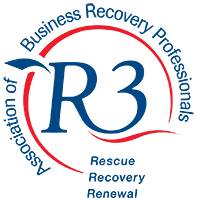Can my IVA fail?
Now that you have entered your IVA, you should be feeling more confident about your financial future. However, it’s important to be aware that there are certain circumstances that can cause your IVA to fail.
While IVA failure is very rare, having all the information available to you means you’ll know the warning signs to look out for.
In this guide we’ll explore IVA failure, including what might result in your IVA failing, what happens if your IVA has failed, and what you should do next if the worst happens.
Why might an IVA fail?
An IVA is a legally-binding debt management plan which enters you into a binding contract with your creditors. Any IVA failure is likely to come from failure to live up to your contract. Put simply, an IVA fails if you do not stick to the IVA terms.
The most likely reasons for an IVA failing include: Not keeping up with payments and failing to inform your Insolvency Practitioner (the IVA supervisor who manages your agreement); Changes in financial circumstances where your creditors refuse to accept lower payments; Accessing further credit without the Insolvency Practitioner’s permission; lying on your IVA application; or the death of the debtor.
Each of the above scenarios represents a breach of contract between you, your creditors, and your IVA provider, and would result in your IVA failing.
What happens once my IVA fails?
Failure report
If your IVA fails, the first thing that will happen next is your Insolvency Practitioner (IP) will send you a letter of termination and a failure report. The failure report includes all the details of your failed IVA, including:
- Creditor details
- How much each of your creditors have been paid via monthly payments
- The reason why the IVA failed
- IVA fees
Once your IVA fails the arrangement will end, meaning you won’t have to continue making payments to your IVA provider or your Insolvency Practitioner.
That said, the money you originally owed still stands. Your creditors will be owed the remaining balance of the debts included in the IVA, and it’s your responsibility to arrange further payments towards your total debts if you want to avoid bankruptcy.
Possible bankruptcy
Because an IVA is a legally-binding agreement, it offers you protection from creditors harassing you for payments. When IVAs fail, that protection no longer exists.
Creditors can resume contacting you, and even have the power to make you bankrupt straight away because you breached the agreement.
Your IP, empowered by the Insolvency Practitioners Association (IPA), also has the ability to make you bankrupt in this instance. Bankruptcy is usually a last resort for problem debt, but it can be a relatively quick way to get a fresh start.
How do I prevent my IVA from failing?
An IVA is a legal agreement. Your creditors have to stick to the rules, and you do too. If you don’t meet your payments or other obligations listed in your IVA it could fail.
When your Insolvency Practitioner set up the arrangement, they assessed your eligibility based on your financial circumstances, including your level of unsecured debt, and whether you have the level of income required to cover the costs involved.
If your circumstances change during the course of the IVA and you’re worried you’ll struggle to afford payments, you should contact your IP immediately. They can come up with a proposal for reduced payments based on what you can afford.
While your creditors are not obliged to accept that proposal, it’s better to make an effort to stick to the arrangement rather than breaching your IVA and having it fail instantly.
Is an IVA breach the same as an IVA failing?
A breach notice can be issued for not doing what was agreed in your IVA proposal, but it won’t necessarily result in your IVA failing.
If you breach your IVA, you will be issued with a breach notice stating how you’ve broken the terms of your IVA. Things that are considered an IVA breach include:
- Not providing the necessary information for your annual IVA review
- Selling your assets and failing to funnel the proceeds into your arrangement
- Missing payments towards your IVA (up to three months’ arrears)
- Refusing to comply with orders from your Insolvency Practitioner (within reason)
- Earning additional income and not paying a portion to your creditors
Any one of these IVA breaches may eventually result in a failed IVA, but you’ll be given time to make amends for the breach in question first.
The breach notice will give you a precise explanation of what you’ve done wrong, as well as a timeframe for correcting your mistake. As long as you take the necessary steps to resolve the matter within that time frame, you should be able to get your IVA back on track.
Will I be eligible for another debt solution after a failed IVA?
If a change in your financial circumstances results in your IVA failing, don’t panic. We may be able to find you a more suitable debt solution. Below are some options that may be available to you.
Debt Management Plan (DMP)
A Debt Management Plan is an agreement, negotiated by you or a third party, to lower your monthly payments to your creditors.
Unlike an IVA, a DMP isn’t legally binding and there is no debt write off involved, but you will be able to repay your creditors over time based on monthly payments you can reasonably afford.
Debt Relief Order (DRO)
A Debt Relief Order (DRO) is an agreement designed to help people with little to no spare income, who don’t own their home, and have debt of £20,000 or less, pay it back over time.
Set up through a DRO advisor and the Insolvency Service, a Debt Relief Order allows payments to be paused on the debts you owe for a period of 12 months. Once you’re in a DRO, your creditors can’t force you to make any payments, and they can’t actively pursue you for your debts.
Bankruptcy
An Insolvency Practitioner can ask court to make you bankrupt if your IVA fails. If you have a low income and don’t own a home, this may be a good solution, allowing you to get rid of your debts and make a financial fresh start.
It’s also possible for you to petition for your own bankruptcy if you feel you have no other way to deal with your debts, although you should consider your options carefully before agreeing to anything.
Alternatively, your creditors may try and make you bankrupt for breaching your IVA terms. If you want to avoid bankruptcy you should try to come to an agreement with them separately about how you will repay the debt you owe.


